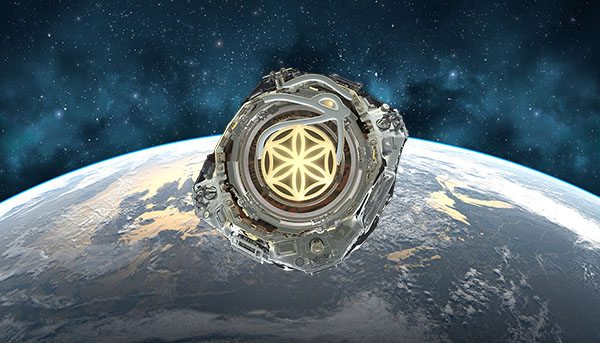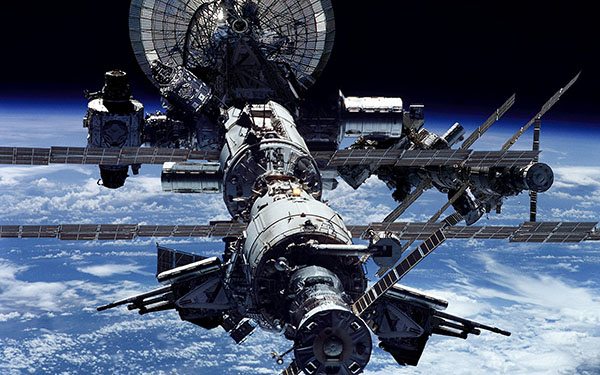I found this project on the Internet called Asgardia named after a realm of Norse mythology. It is meant to be the first public space program that invites members of the public to actually live there in the future. The first satellite will be launched in 2017-18 and they will build with that from scratch, perhaps by adding capsules successively.
People can sign up to it on the Internet: http://asgardia.space/citizenship. So far, there 473,000 members and Asgardia is he second smallest country on Earth, just ahead of Malta that has a population of 429,000. It is still open for registration.
There are now 11 ministries: Ministry of Science, Ministry of Industry, Ministry of Space, Ministry of Youth and Education, Ministry of Integration, Ministry of Information and Communication, Ministry of Foreign Affairs, Ministry of Trade and Commerce, Ministry of Finance, Ministry of Safety and Security, Ministry of Justice. A twelfth ministry will be added and chosen in a Facebook contest.
My questions are:
* Is this a viable project?
* What ministry would you work for? What would your work involve?
-----------------------------------------------
Fed Up With Earth? Why Not Join ASGARDIA, the First Outer Space Nation?
Published on October 13, 2016 in News by Agent I
This week, a team of experts assembled to propose an ambitious new project: the first ever nation of outer space.
It’s called Asgardia and its creators say it will be the “prototype of a free and unrestricted society which holds knowledge, intelligence and science at its core along with the recognition of the ultimate value of each human life.”
Named after Asgard, the Nordic mythical city in the sky where Odin and the other Æsir dwelt, Asgardia aims to set a precedent for humans living and working in space. Its main objectives will be asteroid mining and providing the Earth with a line of defense against threats from outer space such as meteorites, asteroids or man-made space debris. There are no prerequisites to attaining Asgardian citizenship; their website states that “any human living on Earth can become a citizen of Asgardia.” If you’d like, you can join the space venture here.

The ambitious project is not just for show. Asgardia’s founders are planning the launch of a satellite in 2017-2018 but the program’s full scope and magnitude will become obvious in the years to come.
“Asgardia is a fully fledged and independent nation, and a future member of the United Nations — with all the attributes this status entails,” said Asgardia founder Igor Ashurbeyli. “The essence of Asgardia is peace in space and the prevention of Earth’s conflicts being transferred into space.”
The next step after launching a satellite would be the construction of a permanent base in orbit around Earth. Once the base is populated and operational, Asgardia could be on the fast track to becoming an autonomous space nation.
This enthusiastic enterprise is benefited by the expertise of several big names in the field of space exploration. Its founder, Igor Ashurbeyli, is a Russian businessman and scientist known for his interest in bold aerospace strategies. He is joined by the directors of Space Institutes from several major universities. Together, they plan to offer an “independent platform free from the constraint of a land-based country’s laws.”
“By creating a new space nation, private enterprise, innovation and the further development of space technology to support humanity will flourish free from the tight restrictions of state control that currently exist.”
But these are all big words part of a big plan that will need the backing of even bigger bucks to lift its own weight off the ground. And while Ashurbeyli is so confident in the program’s success that he kickstarted it using his own money, Asgardia will probably need to raise hundreds of millions of dollars to see its first wave of objectives complete. Launching something larger than a football field into low Earth orbit costs a pretty penny.

By comparison, the International Space Station cost $150 billion to build and operate, and it was a joint effort between NASA, JAXA, the Canadian Space Agency, the European Space Agency and the Roscosmos State Corporation. Granted, the cost of producing materials and getting them into orbit has dropped since work began on the ISS in 1985, but that does not make Asgardia a less daunting task.
Despite the technical, logistical and (especially) legal hurdles, Asgardia or something similar was bound to happen this decade. With all the other ambitious plans and the renewed interest in space exploration, it was just a matter of time before someone tackled the whole “nation in outer space” thing. Whatever outcome it might have, Asgardia will definitely pave the way for any venture that aims to create a home away from home in outer space.
Photo credit: Asgardia/Abiogenisis
http://ufoholic.com/join-asgardia-first-outer-space-nation/
People can sign up to it on the Internet: http://asgardia.space/citizenship. So far, there 473,000 members and Asgardia is he second smallest country on Earth, just ahead of Malta that has a population of 429,000. It is still open for registration.
There are now 11 ministries: Ministry of Science, Ministry of Industry, Ministry of Space, Ministry of Youth and Education, Ministry of Integration, Ministry of Information and Communication, Ministry of Foreign Affairs, Ministry of Trade and Commerce, Ministry of Finance, Ministry of Safety and Security, Ministry of Justice. A twelfth ministry will be added and chosen in a Facebook contest.
My questions are:
* Is this a viable project?
* What ministry would you work for? What would your work involve?
-----------------------------------------------
Fed Up With Earth? Why Not Join ASGARDIA, the First Outer Space Nation?
Published on October 13, 2016 in News by Agent I
This week, a team of experts assembled to propose an ambitious new project: the first ever nation of outer space.
It’s called Asgardia and its creators say it will be the “prototype of a free and unrestricted society which holds knowledge, intelligence and science at its core along with the recognition of the ultimate value of each human life.”
Named after Asgard, the Nordic mythical city in the sky where Odin and the other Æsir dwelt, Asgardia aims to set a precedent for humans living and working in space. Its main objectives will be asteroid mining and providing the Earth with a line of defense against threats from outer space such as meteorites, asteroids or man-made space debris. There are no prerequisites to attaining Asgardian citizenship; their website states that “any human living on Earth can become a citizen of Asgardia.” If you’d like, you can join the space venture here.

The ambitious project is not just for show. Asgardia’s founders are planning the launch of a satellite in 2017-2018 but the program’s full scope and magnitude will become obvious in the years to come.
“Asgardia is a fully fledged and independent nation, and a future member of the United Nations — with all the attributes this status entails,” said Asgardia founder Igor Ashurbeyli. “The essence of Asgardia is peace in space and the prevention of Earth’s conflicts being transferred into space.”
The next step after launching a satellite would be the construction of a permanent base in orbit around Earth. Once the base is populated and operational, Asgardia could be on the fast track to becoming an autonomous space nation.
This enthusiastic enterprise is benefited by the expertise of several big names in the field of space exploration. Its founder, Igor Ashurbeyli, is a Russian businessman and scientist known for his interest in bold aerospace strategies. He is joined by the directors of Space Institutes from several major universities. Together, they plan to offer an “independent platform free from the constraint of a land-based country’s laws.”
“By creating a new space nation, private enterprise, innovation and the further development of space technology to support humanity will flourish free from the tight restrictions of state control that currently exist.”
But these are all big words part of a big plan that will need the backing of even bigger bucks to lift its own weight off the ground. And while Ashurbeyli is so confident in the program’s success that he kickstarted it using his own money, Asgardia will probably need to raise hundreds of millions of dollars to see its first wave of objectives complete. Launching something larger than a football field into low Earth orbit costs a pretty penny.

By comparison, the International Space Station cost $150 billion to build and operate, and it was a joint effort between NASA, JAXA, the Canadian Space Agency, the European Space Agency and the Roscosmos State Corporation. Granted, the cost of producing materials and getting them into orbit has dropped since work began on the ISS in 1985, but that does not make Asgardia a less daunting task.
Despite the technical, logistical and (especially) legal hurdles, Asgardia or something similar was bound to happen this decade. With all the other ambitious plans and the renewed interest in space exploration, it was just a matter of time before someone tackled the whole “nation in outer space” thing. Whatever outcome it might have, Asgardia will definitely pave the way for any venture that aims to create a home away from home in outer space.
Photo credit: Asgardia/Abiogenisis
http://ufoholic.com/join-asgardia-first-outer-space-nation/


